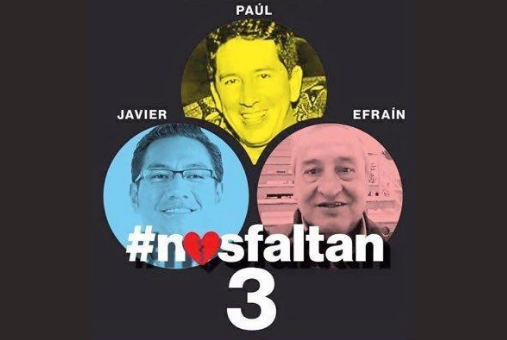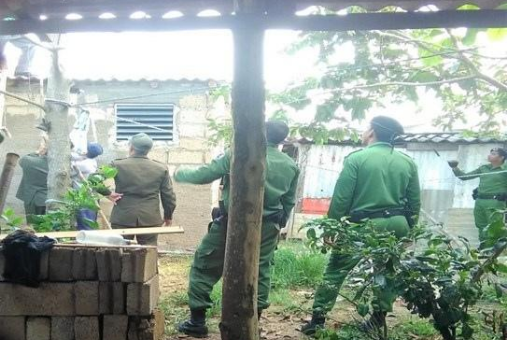
The Colombian and Ecuadoran governments confirmed that three bodies found in Tumaco, Colombia belong to the El Comercio reporting team that was abducted on March 26 while reporting in the border region.

Independent Cuban journalists are calling for support from international governments and organizations as they report a rise in detentions and attacks.
Mexican journalist Héctor González Antonio was found dead on May 29 in Ciudad Victoria, capital of the Mexican state of Tamaulipas, according to local authorities.
Mexican authorities arrested Arturo Quintina, known as “El 80,” an alleged drug trafficker suspected of ordering the March 2017 murder of journalist Miroslava Breach, according to El País.
The call for justice for Mexico’s journalists will not stop, despite years of violence and impunity that plagues the profession in that Latin American country. To mark the one-year anniversary of the murder of Sinaloa-based reporter Javier Valdez, colleagues and friends carried out a National Day of Protest on social media and in person, calling for his killers to be brought to justice and for an end to violence against the journalists who uncover things that many would prefer were kept secret.
A statement from independent Nicaraguan journalists condemning lethal violence on protesters and attacks on the press, and urging respect for press freedom from the government, has garnered signatures from 35 media outlets, four civil society organizations, 87 journalists and counting.
In Brazil in 2017 there were at least 27 serious violations against communicators, according to a report released on May 3 by the Brazilian branch of international organization Article 19, which is dedicated to the defense of freedom of expression. The information compiled by the NGO annually since 2012 highlights continuing trends in the country: politicians are the main suspects of ordering or carrying out violations; small cities, with up to 100,000 inhabitants, are the main sites of these violations; and radio broadcasters and bloggers are the main victims of the attacks.
The film crew behind the latest documentary looking at violence against journalists in Mexico spent three years (2015-2017) working on the project. Three years which they say were the bloodiest for the country's press.
Federal Police arrested one of the suspects in the killing of Mexican journalist Javier Valdez Cárdenas on April 23 in Tijuana, Baja California, according to Ríodoce. National Security Commissioner (CNS) Renato Sales Heredia formally announced the arrest at a press conference in Mexico City the following day.
"With deep regret, I regret to report that the assassination of our compatriots has been confirmed," Ecuadorian President Lenín Moreno wrote on his Twitter account on the early afternoon of Friday, April 13. The president publicly confirmed the death of the two journalists and the driver from newspaper El Comercio, who were kidnapped at the end of March by a dissident group of the FARC.
On April 4, the Civil Police of the State of Goiás handed the Brazilian justice system the completed investigation of the murder of radio journalist Jefferson Pureza, who was killed in the city of Edealina on January 17 of this year. The police investigation concluded that councillor José Eduardo Alves da Silva, of the Party of the Republic (PR), ordered the crime and should be charged with double-qualified homicide, for trivial motive and for payment, according to G1.
At least 19 journalists and media professionals were attacked in various cities in Brazil between April 5 and 7 while working to cover former President Luiz Inacio Lula da Silva (2003-2011) going to jail, according to records from the Brazilian Association of Investigative Journalism (Abraji). The assaults, which came from supporters of Lula and the Military Police, were repudiated by press organizations in Brazil and Latin America.